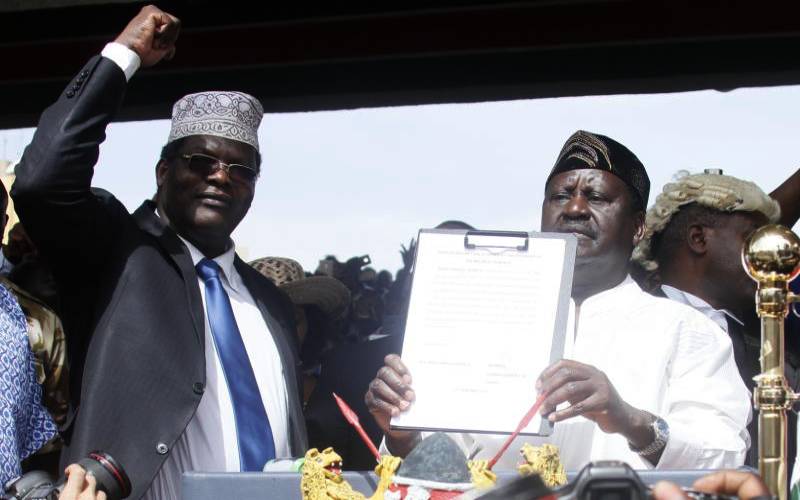 From mid-2016, I was part of the Men in Red brigades that crisscrossed the country campaigning for the Jubilee Party, President Uhuru Kenyatta, William Ruto, God and Country. In August 2017, we won a titanic victory, not only winning the Presidency, but a majority in both houses.
From mid-2016, I was part of the Men in Red brigades that crisscrossed the country campaigning for the Jubilee Party, President Uhuru Kenyatta, William Ruto, God and Country. In August 2017, we won a titanic victory, not only winning the Presidency, but a majority in both houses.
In the aftermath of victory we resented the fact that Raila Odinga refused to accept our victory. Then the appointment of government started and I realized that Raila, who represented the collective will of 44 per cent of this country, could not even appoint a messenger in the national government.